So, in answer to my grandson’s question, here’s the “well yes” part:
I had become a producing artist and was able to give myself opportunities to grow as a playwright by seeing my work living and breathing on smaller stages. I published a collection of my full-length plays. My shorter works and monologues appear in theatrical anthologies. I pen theatre-related articles for online magazines and blog posts. I have been interviewed on theatre-related podcasts. I have curated and produced events promoting women’s work around the social issues of our time like the brutality and murder of women of color at the hands of the police and the #MeToo movement.
These steps ensure that my grandchildren and future generations of theatre lovers will know I was here and had something to contribute to the American theatre. And finally, although in the minority—not unlike the Black suffragettes and Black feminists who fought for inclusion despite the unrelenting bias they endured—I found community with white women theatre artists fighting for parity.
And, here’s the “… and no” part:
All of these efforts have afforded me the street cred and respect of my peers but not the nationally recognized awards and accolades that garner the attention of regional theatres and Broadway producers. I have failed in balancing my work as an activist with my work as an aspiring playwright in that sense. (In fact, right now, I am sure there is a submission opportunity, or a grant, or residency that I should be applying to as I write this article!) I am “of a certain age”—too old, perhaps, to be the next “hot thing,” “flavor of the month,” or “theatre darling.” I am a recovering “hope-a-holic” who cannot go backwards and recover those “lost years of not doing self-advocacy.”
The icing on the cake came with the Lillys’ most recent findings in the “The Count 3.0” which says, in part: “It’s clear that, although the American theatre has continued to add to the diversity of its playwrights, neither gender nor racial parity has yet been achieved in terms of production. Anecdotally, it appears that women over the age of fifty, especially Black, Indigenous, and people of color (BIPOC) women+ who led the push for the diversity we now enjoy, do not appear to have directly benefitted.”
There it was in black and white. I had been fighting all this time for white women to have more opportunities in the industry than women like me. This news was very disheartening. It caused me to call into question the last fifteen years of my life as an activist fighting for parity for women+ theatre artists. What now? Do I keep fighting for those BIPOC women+ under fifty and future generations?
The truth is, now in my sixties, I am tired and ready to turn this particular fight over to those who are younger and stronger. After years of advocacy, I was looking forward to spending more time writing, networking, submitting more consistently, maybe getting an agent, and securing that all-important regional production that may have a future on the Great White Way. I was looking forward to taking my seat at the table.
Knowing I am part of a historic lineage, a continuum of Black women activists on the frontlines of one cause or another who may not see the fruits of their work in their lifetime, I am wondering how to reconcile and be at peace with the findings of “The Count 3.0” while still fighting the good fight. I am wondering what the response to these findings are by other BIPOC women+ playwrights in my shoes, or if they even know. I am wondering, “What happens to a dream deferred,” a question posed by poet, essayist, novelist and playwright, Langston Hughes in his iconic poem, “Harlem”:
What happens to a dream deferred?
Does it dry up
like a raisin in the sun?
Or fester like a sore—
And then run?
Does it stink like rotten meat?
Or crust and sugar over—
like a syrupy sweet?
Maybe it just sags
like a heavy load.
Or does it explode?
I don’t yet have an answer to Hughes’ question because I am still living it. But I can imagine the mountaintop. And as I crest, I see my dream deferred exploding—not in my lifetime but a hundred years from now when women+ playwrights in great numbers explode onto the American theatre scene. In my dream deferred, I see BIPOC women+ having the same opportunities as their white sisters and together as womenkind, they have the same opportunities as white men. In my dream deferred, I see producers discovering the plays of BIPOC women+ over fifty and posthumously dedicating whole seasons to their unsung work. In my dream deferred, I see a seat at the table for all of us. In the words of voting and women's rights activist, community organizer, and leader in the civil rights movement, Fannie Lou Hamer, “We didn’t come all this way for no two seats when all of us were tired.”

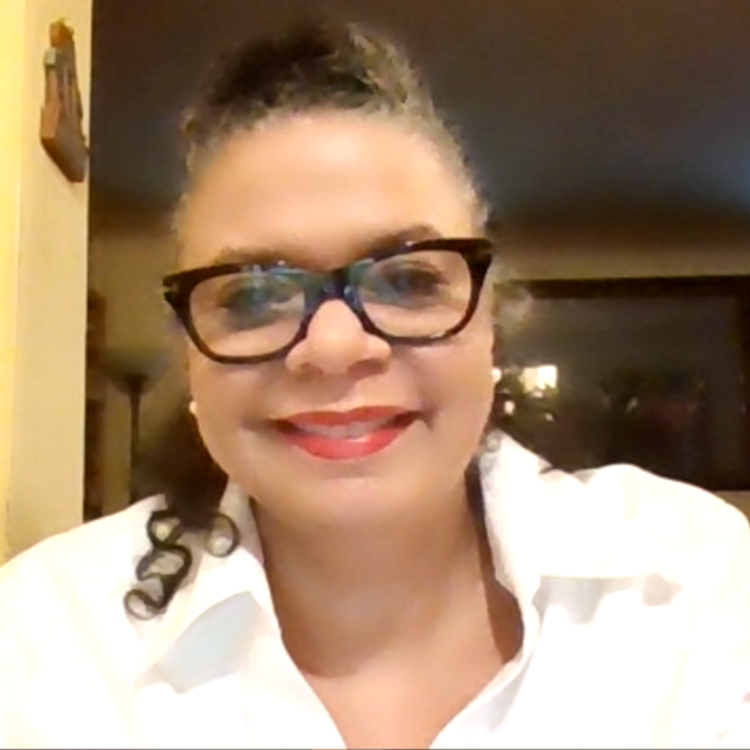
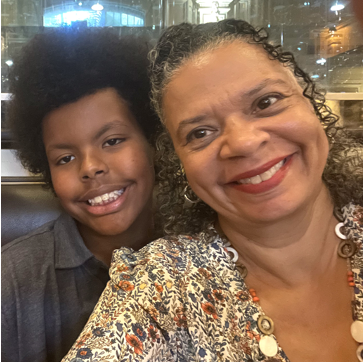
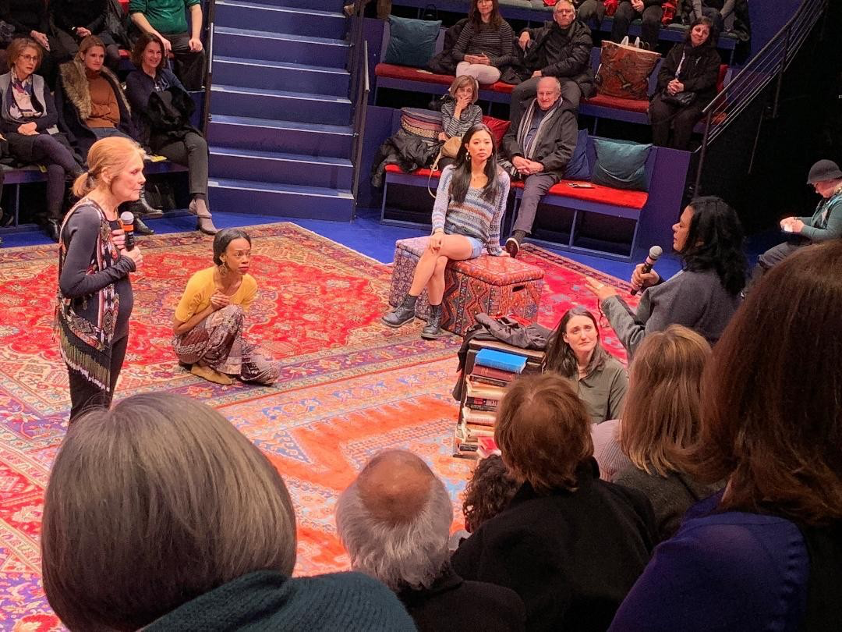
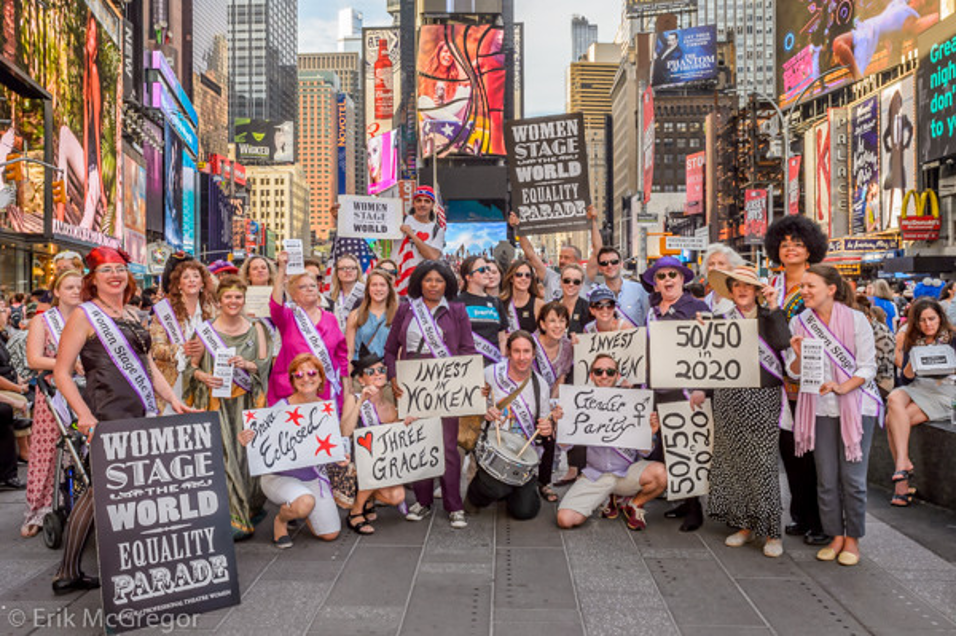
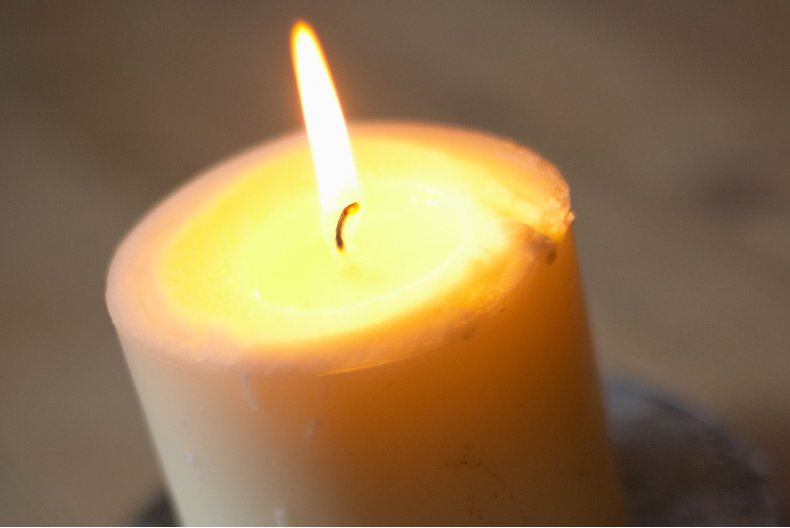
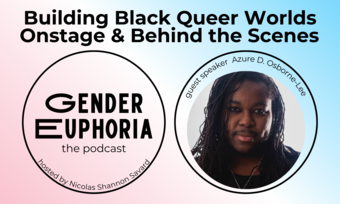


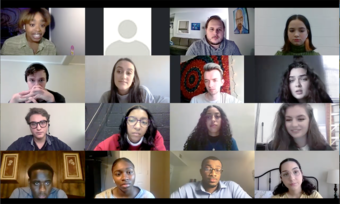


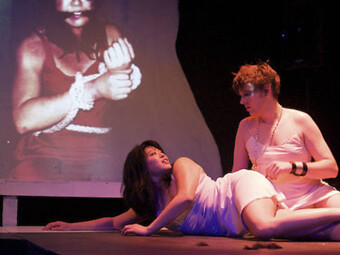

Comments
The article is just the start of the conversation—we want to know what you think about this subject, too! HowlRound is a space for knowledge-sharing, and we welcome spirited, thoughtful, and on-topic dialogue. Find our full comments policy here
I am happy that Yvette shared this important article with those of us who missed it the first time. Having been in the trenches with Yvette since 2009, when we created 50/50 in 2020 (and were 15 years younger!) I know the conflicting feelings of fighting the good fight when it doesn't necessarily advance one's own career. But Yvette's energy, commitment and dedication have made a significant impact. We are learning more about all of the forgotten theatre women over the years (part of the 50/50 in 2020 initiative), and the vast store of plays that have never been produced. So I hold out hope that a playwright such as Yvette can be "discovered" at any point in the future. The work is there, and that makes a difference.
Melody, thank you for your hope for my "discovery" in the present day. And perhaps more importantly, thank you for providing a platform for the "re-discovery" of little-known/forgotten women playwrights from 900 - 1970 and the "vast store of plays that have never been produced". Through your unflinching stewardship of On Her Shoulders, a "first-of-its-kind public database of women from around the world who have used the dramatic form of expression throughout their literary careers", you have provided the proverbial "shoulders" on which we as women theatre artists can stand. Heart Emoji.
PS. Read more about Melody's work in his article written by Tammy Ryan, (Women’s) History Matters | HowlRound Theatre Commons).
Yvette, thank you for your beautiful article. I so appreciate everything you share and Identify with so much of it, despite not being a woman of color. I am a playwright/director in my 60’s and have gobs of identification on that level.
It is indeed a challenging time in life, but I still have deep passion, quite a bit of drive, determination and hope.
I’m glad to be part of this conversation. I’m proud to know you and grateful that you spoke up and wrote about your experience.
Thank you so much, Lisa. I have received emails from women who have read the article and share your sentiments. Yes, if you're around in the business long enough, age does seem to become the great common denominator in the fight for parity. It brings me joy an encouragement to read that you still have "quite a bit of drive". We do have to keep encouraging one another, I think.
Hello Yvette! I stumbled upon an email from you earlier this year, and I starred it, but am just getting a chance to stumble back upon it. I will blame that on my current life, which demands that I have two paid jobs and numerous side gigs, along with all my arts stuff, just to pay bills and keep a roof over the heads of me and my sons. I guess, at the end of the day, that's my response to your writing. I admire you and all playwrights who stay, vigilantly and nonstop, in the game. That hasn't been my story. While I've continued to write -- I've put out a book, written a screenplay for hire, and been a journalist -- 2024 will make it about 19 years, since my last workshop in NYC. I have been developing a play here, and hope workshop production happening in Tampa Bay, next year. But... yeah. I feel everything you have written. Thank God our art comes from inside, first, right? Please be well...xo
Jake
Jake-Ann: Thank you so much for your comment and for sharing. I wish that artists could be supported in this country the way they seem to be in other countries... (I think that is still true!) In the meantime, we fight the good fight. It took me YEARS to write my first play-- trying to find time in between changing diapers, cooking dinner, and keeping house (which I was never really good at!). One time, when the kids were little, I asked my husband if he would take them to the playground for a couple hours. When he came back, he said, "What are you doing? Where's dinner? I thought you were going to straighten up the house". I looked up from my typewriter and said, I didn't send him to the playground with the kids so I could cook and clean. I sent him to the playground so I could write a few pages of my play-- maybe even a whole scene. He said, "Oh, OK", and has been my most staunch supporter ever since, doing whatever he can to support me. And I'm not talking about money. I'm talking about believing in me and my gifts and talents. Jake, we are all living our lives, writing as much as we can, when we can, because we are driven to do so. Congratulations on the new play you are developing. It's been 19 years, sure, but that means your work will be that much deeper and richer. You're doing it! We're doing it! We are fighting to fulfill the dream God (or Spirit) put in our hearts... by any means necessary!
Dear Talking Circle Friends: I had a recent trip to the cardiologist due to a recent resurgence in panic attacks (which if you have ever had one feels like a heart attack). The turning back of hard-won legislation regarding voting rights, LGBTQ rights, abortion/women's healthcare and autonomy over our own bodies, etc. has brought about a baseline level of upset within me that is sometimes triggered during the daily news cycle. I think the most upsetting is this business of book banning and the removal of books from public libraries so they can be turned into detention centers for [black and brown] students who are deemed in need of discipline. The removal of America's history is spreading like a cancer across the country. I am holding my breath that plays by BIPOC and women+ playwrights who have taken up historical or social justice issues, do not suffer the same fate. We have fought so hard to gain the ground that we have. Other than schools and libraries, the entertainment industry is one place where history is learned. In the current political climate and given what I have disclosed in my article as the plight of BIPOC and women+ playwrights over 50, to see our plays banned because of the subject matter, before they have had the slim chance for production or publication that they do, would be more than I could bear. Yvette
Talking Circle Friends: This email was sent earlier this year and I did not see it because it went to an address I seldom check. Many thanks to Celeste for her response to this article and for her wisdom. Yvette
What happens to a dream deferred? That is one of my all-time favorite poems. As an American Black woman playwright, I’ve had to stop and ask myself that question from time to time, especially now as a writer of a certain age in theatre.
Thank you for this talking circle, Yvette. Even though perhaps I don’t speak up as much as I should, I have always considered myself an activist in my heart, because I am always doing what I can, when and how I can to further my (and other writers') dreams, goals and purposes in the arts.
Often, I feel that the activism or attention that women of color stir up in theatre, rebounds and pivots to others. It may not be something necessarily deliberate, just the unconscious American way. After all the marching, the shouting, and heartfelt resolutions, it seems the diversity storm clears, and the world returns to the “normal” white default setting with a vengeance: #oscars so white, #broadway so white, #regional theatres so white, #everything so white.
What happens to a dream deferred? My dear mother is gone now but often when I’d feel like giving up in the theatre world, I’d go to her, the original activist in my life, and she’d listen and encourage me with words something like these: a dream may be deferred or you may have to go around the long way sometimes or you may have to build your own table and chairs, and sit down at it by yourself, but---proceed.
This beautiful, insightful, vulnerable article you’ve written, Yvette, gives me that same kind of inspiration. It speaks to the heart of us non-white women writers and to the white women writers and theatre makers that recognize the importance of other voices and creations. The struggle continues. A dream may be deferred, postponed, detoured, but it can’t be stopped, so let us all... proceed.
Celeste Walker
I came across this Gloria: A Life Toolkit put out by American Repertory Theatre. On page 9 you can learn more about Talking Circles. Wilma Mankiller, the first female chief of the Cherokee Nation explains, "The heart of our governance is the caucus—an Algonquin word that means talking circles—it’s a consensus among women and men. The paradigm of human organization for us is the circle, not the pyramid." Steinem goes on to say, "This is the way we discover we’re not crazy and we’re not alone.” I love that. https://american-rep-assets.s3.amazonaws.com/wp-content/uploads/2020/01/29112820/Gloria-Toolkit-Final.pdf
Dear Ones:
On May 16, 2023, I received this email which I have the author's permission to share with you anonymously. It came as a welcome surprise, as this article was published back in January. Here it is:
Peace Yvette
Sometimes a dream deferred includes necessary reading deferred.
I read this article today and it brought tears to my eyes as the Me2 Me2 Me2 kept popping into my head
First, thank you for this article, and thank you for all the advocacy and organizing you have done through the decades, inside and outside of the theater.
I am a South Asian woman who has spent most of my life doing some sort of community organizing or working with youth in public school settings. Black and Latinx women took me under their wings when I was younger and I learned how to navigate these U.S. white supremacist, misogynist systems we are supposed to prosper in if we are "good enough".
I believed those myths of meritocracy until I was about 50. I'm not - creative, smart, talented, pretty, likable, relatable, disciplined, relaxed, edgy, conformist, connected, ethnic, or white - enough. I tried on every reason why I have remained unproduced by larger theatres, even as I've turned to more "self-advocacy". But even that is a myth. We need others to advocate for us. And the problem is not our work. It's their taste (or lack thereof).
Funny, I ran across your article today. Funny, I have been saving it to read. And today is the day I read it. Right after seeing that a Hartford theatre is producing two white women and two white men playwrights in their coming season. I want to believe things are changing and maybe they are in some places at some times.
I feel ashamed to say that sometimes I envy the success of younger BIPOC women playwrights. But I know that is mislaid anxiety about my own time running out. The Universe has taught me that timing is not in the hands of artistic directors and literary agents. Still, it is absolutely possible I will never have a world premiere at NYTW or The Public or Steppenwolf or Berkeley Rep or or or.... and then what? Will I remain as invisible in the end as I was in the beginning?
My dream deferred lingers flapping in the breeze like white cotton shirts hanging on a clothesline, the shadows following the sun around but never catching up, disappearing with the sunset. To rise again to chase that sunlight down the next day. I too, am a hope-a -holic.
In hopeful sisterhood
Many blessings and successes to you, Yvette
I was humbled and moved to read her email. I replied in part, "I am right there with you. I too try to resist envying the success that younger BIPOC women+ writers seem to be finding. Youth always seems to win out (regardless of race)."
Yours in the Struggle,
Yvette
Dear Ones:
In the time since I wrote this article, I received the League of Professional Theatre Women's Special Award for Meritorious Service at their LPTW Theatre Women Awards 2023. My oldest daughter Stella Heyliger-Mulatu (Director of Diversity, Equity, and Inclusion, Stephen Gaynor School) presented me with the award https://www.playbill.com/article/anna-deavere-smith-wins-rachel-crothers-leadership-award.
In my acceptance speech, I referred to The Count 3.0 which I discuss in this very article, saying in part:
... There it was in black and white. Like black women+ activists throughout history, it was clear that we may not see the fruits of years of activism in our lifetime. It’s bad enough that BIPOC women+ playwrights are produced at less than half the rate of white women, now those of us over 50 have apparently been aged out of opportunities altogether.
I had hoped that, by now, not just one or two of us, but many more of my sisters and I would be able to take a Seat at the Table. In the words of voting and women's rights activist, and leader in the civil rights movement, Fannie Lou Hamer, “We didn’t come all this way for no two seats when all of us were tired.”
That is why this award is so important and why I am so grateful. It says, “You are seen. You are appreciated. Don’t give up.” And I won’t. Seeing emerging BIPOC theatre women+ artists like Julie Bausivoir and Genevieve Daniels (American Academy of Dramatic Arts), and Andrea Ambam (NYU) sitting at (Broadway producer) Margot Astrachan’s table, makes it all worth it.
So in my article when I ask, "What now? Do I keep fighting for those BIPOC women+ under fifty and future generations?" the answer is a resounding, "Yes!"
What a terrific piece, Yvette. I am of two minds on the advocacy issue and the fact that it benefits others more than us. One is this: that's the way it always is, and we have to do the work so that future generations don't have the same stumbling blocks that we do, and we just keep doing our best to advocate, do our creative work, and love whatever we are allowed to create and accomplish in this crazy mixed-up world. But, on the other hand, I equally feel that it is to the perceived benefit of those at the "top" of the hierarchy, the privileged ones, to make us keep working/striving/fighting for the same ground over and over again, so that that's all we can ever do, and we are never fully free to create. I say perceived benefit, because no one is truly free, whole, creative, supported, unless we all are, and so they are stifled by the systems in place as well. But they are stifled with privilege. All of that being said, I love what you've written, I love doing both creative work and advocacy work with you, and I am charged to see what we may still create and accomplish!
Thank you for your insights, Shellen. Yes, let us soldier on as sisters in this fight, charged with "what we may still create and accomplish" for ourselves and for theatre women+ yet to be born. And may white and BIPOC theatre women+ be employed and lauded in equal measure.
Thank you so much for this piece, Yvette. I related so strongly to it, on many levels.
As a disabled 60+ female performer/composer/playwright/musician/director and many other hyphenates, I have advocated and fought for more visibility and inclusion of artists with disabilities of all diversities for well over 40 years and have experienced being one "who led the push for the diversity we now enjoy, [but] do not appear to have directly benefitted.” Please understand, like you, I am extremely grateful for the work I HAVE found and accomplished on stages and studios, etc, and have written/created much of the work I've performed all over the world, while being called by Boston Globe "clearly ahead of her time." My advocacy work has contributed to the tripling of employment of performers with disabilities (PWDs) in TV & theatre, while I myself made it to the final callbacks for 7 Broadway shows, only to lose the final round to non-disabled actresses, while younger PWDs (including BIPOC) have found those doors I beat upon open to them. I am PROUD of the increase in visibility which I fought for. And PROUD of my daughter's involvement in Teaching Hard History for the SPLC, educational work in Namibia, and fight for teachers' rights, while saying "well, look who I have as a mom." Creating a legacy of activism (as you have for your grandson) is maybe the most important thing we can do. AND there is still that "dream deferred" you and the esteemed Mr. Hughes refer to. If I look carefully at who is chosen to put their disability writing on well-known stages, while my work has existed since 1993, I see young white men. I'm not trying to say that we are the same person. I just want to express my gratitude and empathy from the perspective of the disabled community who do not even get counted in The Count or most industry diversity reports. Thank you with all my heart.
Anita: Thank you so much for sharing your lived experience and invaluable perspective as a member of the PDW (performers with disabilities) community. We have so much in common. I wonder if The Count has considered including PDW in their study. I will bring it up to the Dramatist Guild's Equity Diversity Inclusion Access committee, of which I am a member. Will be in touch...
PS. Yikes! I mean, WE should bring it up to the Dramatist Guild's DEIA committee, of which we are both members!
HowlRound Community:
Here is another comment that was sent to me personally:
"There are quite a few black women getting produced in New York - now - but how long did it take for us to get there?"
To this one I replied:
"New York City is tricky in that it does seem as though we are getting a lot of opportunities here and therefore can feel assured that things are changing. (How exciting was it to have so many black plays on Broadway post-pandemic? So great!). But this is not the case in theatres across the country. I guess this is why The Count 3.0 hit me so hard. I was lulled into thinking things were really progressing in the parity movement because I live in the 'mecca of theatre'."
Hi, All! Just wanted to share this comment someone sent me personally:
"There have been articles everywhere about how statistically white women are by far the major beneficiaries of affirmative action. I personally know of two instances where white women were hired to head up DEIA offices, and then were hostile to people of color in their department. Of course, we don't use the term "affirmative action" with arts - we might say "woke" regarding people of color becoming more visible - but I wonder how much of the business world affirmative action issues apply to us."
PS. That message was followed up with this:
For the record, in both of those instances that I mentioned, the POCs who were bullied by their white female head-of-DEIA-department bosses were Asian women. (To be clear, bully bosses = white women; underlings who were bullied = Asian women.)
Yvette, this is so powerful. You speak truth to being a woman, a black woman and ageism. A Dream Deferred is my go to poem when I’m feeling the feelings. I have deep identification. I, too, am a hope-a-holic trusting that there will be a seismic shift. However, observing the curtains being ripped down on the treatment of Black, Indigenous and People of Color in this industry makes it hard at times. Yet, we persevere. I’ll try not to defer my dream.
Yvette, this is so powerful. You speak truth to being a woman, a black woman and ageism. A Dream Deferred is my go to poem when I’m feeling the feelings. I have deep identification. I, too, am a hope-a-holic trusting that there will be a seismic shift. However, observing the curtains being ripped down on the treatment of Black, Indigenous and People of Color in this industry makes it hard at times. Yet, we persevere. I’ll try not to defer my dream.
Hi Yvette, I found your article enlightening, moving and also infuriating. It's a very hard realisation that the hard work you have done all your life as an advocate has benefitted others more than you due to entrenched inequality. While your work an advocate has been selfless and no doubt you are pleased to see some gradual improvement even thought the boats have not been lifted evenly, it is my hope (I must be a hope-a-holic too!) that your dream deferred is much. much closer than one hundred years. In your lifetime I hope you receive many productions and the balance shifts a little bit away from advocacy to pursuit of your own goals, and that you achieve much success. Warm wishes, Emma
Hi, Emma:
Thanks for your comment and hope that my "dream deferred is much closer than one hundred years". This sentiment sent me on a quest to learn if I was, indeed, still correct about the 100 years. So, I emailed a friend and was given this formula to try to figure out how long it would take to achieve parity. I was told, "take the earliest date and the most recent date; calculate the rate of change; and then predict, according to that rate, how long it would take to achieve equity".
I first became aware it would take 100 years to achieve parity with the January 2022 publication of the New York State Council on the Arts Report on the Status of Women: A Limited Engagement written by Susan Jonas and Suzanne Bennett. It was this report that sparked the (now defunct) 5050 in 2020 movement to achieve parity for women in the American theatre by the year 2020 (a year that came and went and which, incidentally, coincided with the 100th anniversary of women getting the right to vote!).
Now, full disclosure, math is not my long suit but my understanding is that I would take the year 2002 (when I first learned about the lack of parity for women in the American Theatre) and the most recent date, 2022 (the year The Count 3.0 was published), and go from there. Twenty years is as good a measuring stick as any I suppose!
Is anybody good at math?
Excellent piece, Yvette! You truly are an ARTIVIST, and we admire you for your activism as well as for your courage to tell the truth. This discussion of race—Which women are getting produced?—is an important one. And I think it’s equally vital to look at history. There may be a post- George Floyd consciousness surge, but how long will this “woke”-ness last? In the past fifteen years, what percentage of produced plays have been written by women, and what percentage of those by women of color? Uncovering those answers, I hope, will result in a dialogue that unites, rather than divides, us.
"There may be a post-George Floyd consciousness surge, but how long will this “woke”-ness last?" And therein lies the rub, Kia. Therein lies the rub...
It is an honor to be in this virtual talking circle, asking the critical question: "What do we do next?" And the equally critical question: "How can we do what's next in a way that brings us joy and mends our broken hearts?" When I initiated the Honor Roll! Talks Self-Producing Panel that we had last weekend, I knew it was important to include a social hour to talk afterwards; to share our stories and be witnessed by one another. My take away was that when we internalize rejection as reflecting our worth, rather than the systemic oppression that it truly is, we are alone and defeated. Sharing the truth about how impossible it is to get our voices heard lets us be energized and called to action. I do hope this is the tipping point that ushers in an arts community that is built on compassion and equity. Whatever is next needs to be big, loud, inclusive and fun.
Bayla: Your hope that "this is the tipping point that ushers in an arts community that is built on compassion and equity" officially makes you what, as I report, Gloria Steinem calls a hope-a-holic. I say, from your lips to God's ears! And I agree, "Whatever is next needs to be big, loud, inclusive, and fun". Sounds like my dream deferred exploding...
I began working in theatre over 50 years ago, I was pretty lucky so didn't realize how rare it was for a woman to earn her living working in the business until it thankfully was brought to my attention after I retired. I get some solace for our generation to see some progress in these two current generations of theatre women who have made their marks or are in the process of doing so. But we have a long way to go.
I look forward to the day when all theatre teachers and professors encourage all of their kids experiment, test themselves and fly - no limitations.
I look forward to the day when people who have "made it", hire, mentor and pay kids who want to learn and gain practical experiences, and not just kids who have graduated from Yale, Tisch and the like, but kids who couldn't go to college. And I want to see kids who aren't non-white males have the courage to approach working designers for those jobs.
I look forward to the day when people are hiring not female black, Hispanic, LGBTQIA+ playwrights, directors, designers, composers, stagehands, assistants, etc., but just playwrights, directors, designers, etc. And, well, I hope 50% will happen to be female. And even if they don't do well the first few times, hire them again and again so they can gain the same kind of experiences white males get.
Theatre Commons Community: I received permission to share a comment that came to me via email in furtherance of this conversation. "I have some white women who come to me about how to present their work in this new environment where they perceive all the slots going to Women of Color (which is false, but there are many who think this) - and I give them tools to do the work of racism, to work to weed that out and question it along the way, and to be kind to themselves in the work." Thank you so much for your comments, everyone. Keep 'em coming!
PS. Talk about moving the conversation forward... I feel an event coming on for theatre women+ inspired by this post!
This was me, saying this. I will own the quote because people do come to me and ask about this, and I have been thinking about these issues for a long time. I think we should offer an event, a dialogue, and ways to move forward. How to approach working through it. How do we come together to move all of us forward, and how can we clear up some unhealthy ideas. How can we call ourselves in (instead of calling ourselves out) and use compassion to allow us to move toward healing and growing? That's my impulse. And I thank you Yvette for bringing all of this to light. Without this post, it would have taken us longer to do it. And it's needed. Change is necessary. Thank you so much!
Let's do it, Emma! I love this, "How can we call ourselves in (instead of calling ourselves out) and use compassion to allow us to move toward healing and growth?" Also, I think taking a look at the hard cold facts in The Coung 3.0 vs People's Perceptions is important. There is work to do-- even among us as theatre women+. Theatre Commons Community, please, keep your comments coming. It will be important as we plan this future event.
Thank you for sharing your story, Yvette. You are wonderful!
A beautiful and important read. And the accompanying photo speaks volumes.
Thankful to Yvette and grateful for all the connections to other women/women-identifying artists through Honor Roll!, Women's Theatre Festival and so many others wonderful organizations.
As a playwright, it has been my mission to focus on heroic and resilient women including suffragists, feminists and activists from then to now. That is how I 'take my broken heart and turn it into art.'
Lisa, I love that... "That is how I take my broken heart and turn it into art". It is so important to get the unsung stories of our history as women+ activists out there. I never took Women's Studies courses in school. My focus was on acting, then playwriting, and much later theatre education. I did my own independent reading about the struggles of black suffragettes and feminists. As we saw in "Gloria: A Life", the theatre can be a place where we can all learn what they didn't teach us in school. The truth-telling that went on in that play was so surprising to me. The admission that Gloria's development and growth as an activist was learned from black women activists and the Indigenous woman chief was huge. Looking forward to the next, Women's Theatre Festival! I hope it will get more support in the years to come.
Thank you Yvette for speaking so authentically about your lived experience, the experience of so many people, generations! And it breaks my heart. There is no lack of talent. There is a lack of vision on the programming side. As a queer, disabled, chronically ill white writer writing work that is funny and uplifting, I get no traction. I won't let myself write any more plays. Talk about addiction to hope, I have never had a professional production after 30 years in this business developing other people's scripts and producing reading after reading after workshop, etc. There is only so much rejection a person can take. I have loved spending time with you, especially the video we made about using NPX. And I am grateful for NPX for being able to have a play with 55 recommendations. I live for that validation when no one will produce the play, even after I put it up to great notices and a 93 on show-score. I don't know what else I can do to get people to notice. Where are the theatres looking for something new?
Emma, thanks so much for your post. What you have shared is so striking. I understand why you say it, but I hope you will continue to write plays. "Abraham's Daughters" and "Fukt" are such important pieces. God gave you stories that only you could write. We can't let the lack of opportunity silence the stories that were put in our hearts to tell. For me, production or not, I see publishing as the way to go to ensure future generations know I was here and had something to say.
Thank you Yvette! Of all my plays, those are the ones I am surprised don't get done. I am writing other things now, not plays. I have several new plays that I'm not going to develop further because the landscape is so hostile. For/about older women (my play Just Ignore Me) and about being autistic (Love 15). I have literally been told, "we're not doing it, because you're a woman. We have our women lined up." Well, I am not exactly a woman, but I'm not arguing with people. No one gets any younger, but we can get wiser, and we can stop knocking on the wrong doors.
This essay makes me so sad - and angry - because of the never-ending reality of women, especially women of color but also because of your, Yvette's, reality. You're so talented. I thought you were being produced all over the place; that you're not is so wrong. I have no brilliant solution but just wanted to acknowledge you and your piece.
Judy Binus
Thank you, Judith. We have to stay the course, don't we? My youngest daughter is a writer--a poet-- and she has given me a granddaughter. Sometimes, I find myself wondering if my granddaughter will become a writer too. It makes me smile, knowing that, if she chooses playwriting, our generation of theatre women+ activists have paved the way for parity for her. That's something.